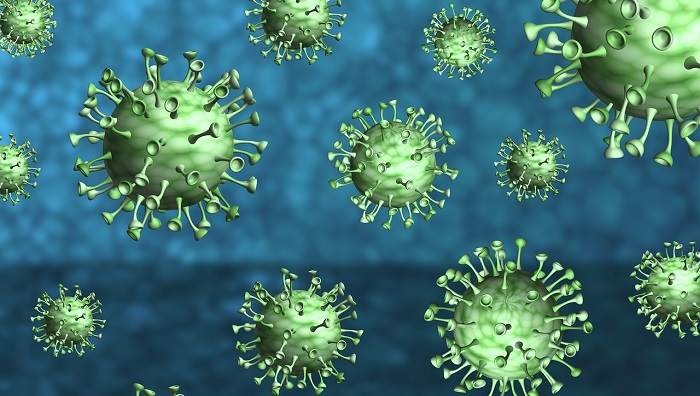
Where has the new variant been detected?
The new variant B.1.1.529, which the World Health Organization officially named omicron, was first discovered on November 11, 2021, in Botswana. That's just north of South Africa. Since then, B.1.1.529 has also been found in South Africa. It's mainly been diagnosed in the province of Gauteng, which includes Johannesburg and Pretoria.
Scientists estimate that up to 90% of all new coronavirus cases in Gauteng may be linked to B.1.1.529. They suggest that the new variant may have spread to eight other provinces in South Africa as well.
As international travelers started to test positive for the new variant, countries began to shut the borders on certain routes or take other measures to restrict travel.
On Friday (26.11.2021), Belgium recorded the first confirmed case of the omicron variant in Europe. That came after samples were tested for the B.1.1.529 variant.
The Belgian virologist Marc Van Ranst wrote on Twitter that the sample was from a traveler who had returned to Belgium from Egypt on November 11. That traveler started to show symptoms on November 22.
By Monday (29.11.2021), there were 13 confirmed omicron cases in the Netherlands, and other cases outside of southern Africa, including in Germany, Hong Kong, Israel, Italy, France, Canada and Australia.
Late last week, hundreds more were awaited COVID test results at the Amsterdam airport as passengers from two flights from South Africa arrived after the Dutch government announced it was banning all air travel from the country earlier on Friday.
How dangerous is the new variant?
Researchers are concerned about the new variant because they say it shows an "extremely" high number of mutations of the coronavirus. They have found 32 mutations in the spike protein. By comparison, the delta variant, which is considered highly infectious, shows eight mutations.
While the number of mutations in the spike protein is not an exact indication of how dangerous a new variant is, it does suggest that the human immune system may find it harder to fight the new variant. There are indications that omicron can escape an immune response, leaving people at a greater risk.
Dr Ulrich Elling, a molecular biologist at the Institute of Molecular Biotechnology in Vienna — a laboratory that specializes in sequencing the coronavirus and detecting new variants — told DW that the first estimates indicated the new variant "might be 500% more infectious than delta."
Infections with the new variant are not necessarily more severe than infections with previous variants. But there are signs that the new variant spreads faster and that that may now put national health systems under greater strain, faster.
What is the WHO's response?
Right now, there is simply not enough solid, epidemiological data to say how infectious the new variant is. On Friday, South Africa called for an emergency meeting of the World Health Organization (WHO) to discuss the new variant.
After the meeting, the WHO classified B.1.1.529 as a "variant of concern." It gave it the name omicron, based on the Greek alphabet, as it has with other variants, such as the delta variant.
How did the new variant develop?
One theory is that the new variant emerged with all its mutations in one big burst.
Professor Francois Balloux, Chair in Computational Biology Systems at University College London, has been quoted as suggesting it's possible that the virus mutated during a chronic infection of a person whose immune system was already weakened by an untreated HIV/Aids infection.
But that is speculation at this stage.
Is there any connection with the beta variant?
Across the continent, South Africa has been hardest hit by the coronavirus. The country has had 3 million COVID cases and about 90,000 people have either died with or because of the virus.
The high number of COVID deaths in South Africa has been attributed to the beta variant, C.1.2.
The WHO classified C.1.2. as a 'variant of concern' because it was highly infectious and vaccines were less effective against it.
But over the course of time, the delta variant, which is even more aggressive than the beta variant, has largely superceded beta in South Africa, as it has elsewhere in the world.
Can we stop the new variant?
Viruses and their variants do not respect national borders. But it is possible to slow the spread of the new variant. As the cases in Hong Kong and Israel have be traced back to southern Africa, many countries stopped flights to and from that part of the continent.
All 27 member states of the European Union agreed to temporarily suspend travel from seven southern African nations on Friday. The US also moved to restrict travel for non-US citizens from South Africa and seven other countries from Monday onwards.
Travel restrictions may help slow the spread of the variant. But since those first cases in Botswana were detected back in mid-November, and flights are only stopping now, it's conceivable that omicron has already been transported to other parts of the world.
This article was last updated November 29, 2021.